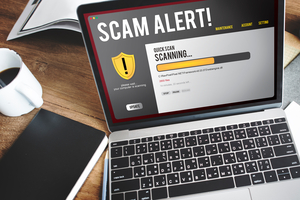How to Keep Your Personal Data Private on Social Media
These days, if you want to find out about someone, all you need to do is go on to Facebook and search for his or her name. With a bit of extra information, you’ll be able to know that person’s address, birthday, relatives, educational background, work experiences, previous travels, and even what he or she ate this morning.
You don’t need a private investigator these days—all you need is social media. It’s one of the reasons why Internet privacy is a hot potato right now. After Facebook’s Cambridge Analytica scandal and the implementation of EU’s GDPR initiative, concerns about internet privacy have skyrocketed. The fact that people spend an average of 2 hours and 24 minutes every day on social media has only highlighted the need for keeping the user’s data private on social media.
What type of information is shared on social media?
Your profile
Most social media platforms allow their users to create online profiles that are very detailed and complete. Although these details are not required, a lot of users feel the need to complete their profile to make it easier for their friends and acquaintances to easily identify their account. Some of the profile information gathered includes gender, age, family information, interests, address, phone number, educational background, and employment.
Your status updates
Social networks usually allow users to their status updates to be able to communicate with friends quickly. Although you can choose to restrict access to your status updates, however, it is still visible to Google and other search engines.
Your location
Social media networks are designed to broadcast your actual location, either as part of your profile or as an update available to authorized contacts only. When you check in to a local business or attend a local event, you are sharing your current location with other people.
Your shared content
Social media is all about sharing content about you, about what you do, and about the people around you. Photos, music, videos, and links are some of the common types of content shared on social media.
All the information that you share on social media reveals information about you, including contextual data that you might not even be aware of. By sharing them online, you are providing enough information for advertisers to track you or the government to monitor your activities.
How Is Your Information Used?
The data that you share on social media, whether publicly or through authorized contacts only, can be used by different entities for their own purposes. For example, an advertiser could aggregate your publicly available information, along with your browsing history, to perform targeted advertising. If you’ve seen a lot of sponsored ads on your Newsfeed related to the items you searched or purchased on Marketplace, then that’s part of their behavioral advertising campaigns.
Third-party applications, such as games, quizzes, polls, and other apps like Kik Messenger and Tik Tok, that you grant access to your profile might be getting more information than you realize. This is actually how the British political consulting firm, Cambridge Analytica, got access to millions of Facebook profiles and influenced public opinion.
Government agencies and law enforcement officers can also monitor your social media networks for valuable information regarding an investigation. Social media has become a vital part of law enforcement investigation because of the abundance of information that can be gleaned from the user’s account. Authorities can also work with the social media platform to get detailed information that is not available to the public.
And for those applying for employment, most recruiters now include looking into the applicant’s social media profiles when doing a background check.
How to Protect Your Privacy on Social Media
How do you keep your data safe on social media? The bad news is that there is always a risk that your information might fall into the wrong hands as long as you use social media. It’s because when you use social media, you’re automatically sharing something to the public.
And let’s admit it: it’s hard to imagine living without social media, especially for people with family members away from home. The good news is that there are some ways to help protect your privacy and mitigate the risk while using social media.
Delete accounts that you don’t need
The #DeleteFacebook movement is a good example of people going to great lengths to protect their data. This might be a good idea if you are living with your family and don’t need to use it to communicate with other people. Or if you have several Facebook accounts you previously created for some reason. If you find yourself not using a social media account, it would be better to shut down your account and delete the application from your devices to cut off any chances of inadvertent data sharing. You might not be aware of it, but social media apps can theoretically access information and data on your device.
Limit the number of social media networks that you use and don’t create new accounts just to gain more coins for your games or to stalk someone on social media.
Limit your friends
You’re not obliged to accept everyone who sends you a friend request. You might argue that social media was meant for making friends and connecting with people, but it is not advisable to connect with total strangers. Keep in mind that your list of friends will have access to information that you don’t normally want the public to know, so make sure you know your friends. Don’t hesitate to reject connection or friend requests from users you don’t know or have dodgy profiles. Review your friends list regularly and unfriend those who you don’t know.
Change your privacy settings
Most social media networks provide users with the option to change their privacy settings and manage the way their information is seen. Platforms like Facebook, LinkedIn, and Twitter have made it easier to decide who can see your posts and who can follow you. You can look around your social media account and look for the Privacy settings.
Facebook, for example, allows you to control who sees your profile and timeline, who can see your email and other contact information, who can tag you on posts, who can send you messages and friend requests, and other information. Other social media platforms also have this option, all you need to do is dig around the platform’s settings. And make sure to check your privacy settings regularly too, because sometimes they get changed suddenly and mysteriously.
Be careful what you post online
You don’t want people to use your own posts against you or ruin your reputation. If you don’t want something to be associated with you, then post it. Reckless posting can come back to haunt you when you least expect it. Never post anything that you don’t want other people to see. So before you publish your posts, double-check and triple-check.
Keep in mind that everything you publish online could easily be seen by your employers, family members, friends, professional contacts, and anyone else who can see your profile. And though you can always delete the unwanted posts later, you don’t know who has taken a screenshot of your unwanted post. The same goes for your conversations.
Don’t share everything about yourself
Social media users like to use their real names, addresses, and other personal information to make it easier for friends to recognize them. Professionals, too, like to add their employment details on LinkedIn to build a good reputation and easily connect with other professionals in the industry. However, giving out these details make it very easy for cybercriminals to guess your other important information, such as your work email, to launch targeted phishing or online scams that seem credible. To be safe, don’t share all your information online so hackers will have lesser data to work with.
Don’t share family photos on your social media
We know you love your kids, but you don’t need to post everything they do on social media. Cyber predators can grab photos of your children and stalk them on the internet. And since you put your address and your complete name on your profile, it is easier for these online predators to locate your house and probably put your kids in danger. Posting pictures of your children online makes them possible targets by sexual and other cyber predators.
Don’t use your social media profile to log into other websites
These days, it is easier to create new accounts by simply using your social media profiles to log in. For example, you can use your Facebook or Twitter profile to log into other services. Instead of typing in your information, such as email address, password, name, and address, all you need to do is click the ‘Login with Facebook’ or ‘Sign up with Facebook’ option, then everything will be filled out for you.
However, sharing your data across different platforms is very dangerous because you’re pooling all of your data in one location. Once any of these platforms is breached, then all of the accounts associated with your Facebook profile will also be compromised.
So don’t be lazy when creating profiles. Take a few minutes to set up your account using the signup form instead of relying on the ‘Sign up with Facebook’ function.
Wrapping Up
With social media becoming a very important tool for communication, it is becoming harder to stay private and keep your personal information safe. Hopefully, the tips above can help you protect your privacy online while enjoying the benefits of social media. It might be a good idea to receive additional training in online safety to be aware of all possible threats and how to be protected against them





 Explore the Safe Search Engine -
Explore the Safe Search Engine -